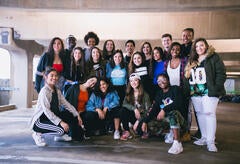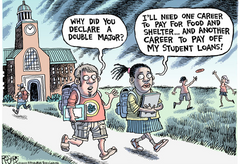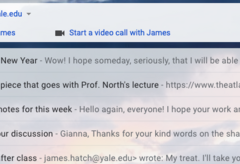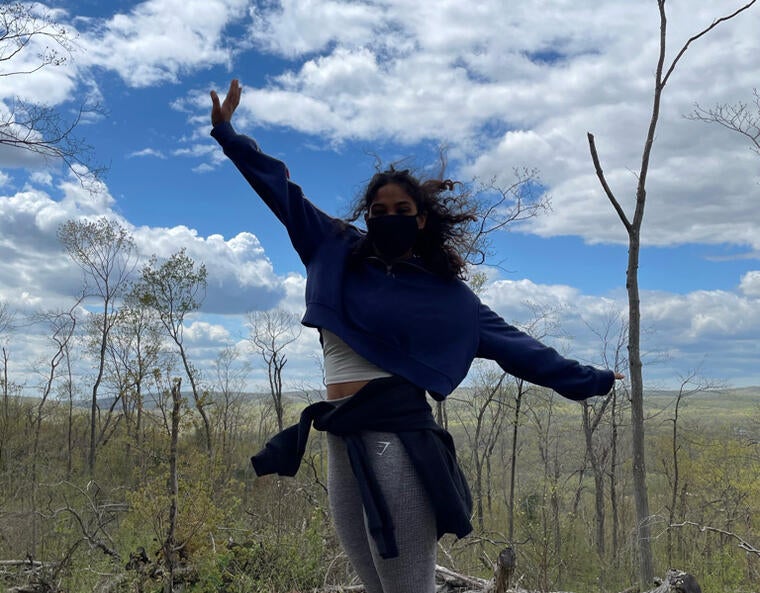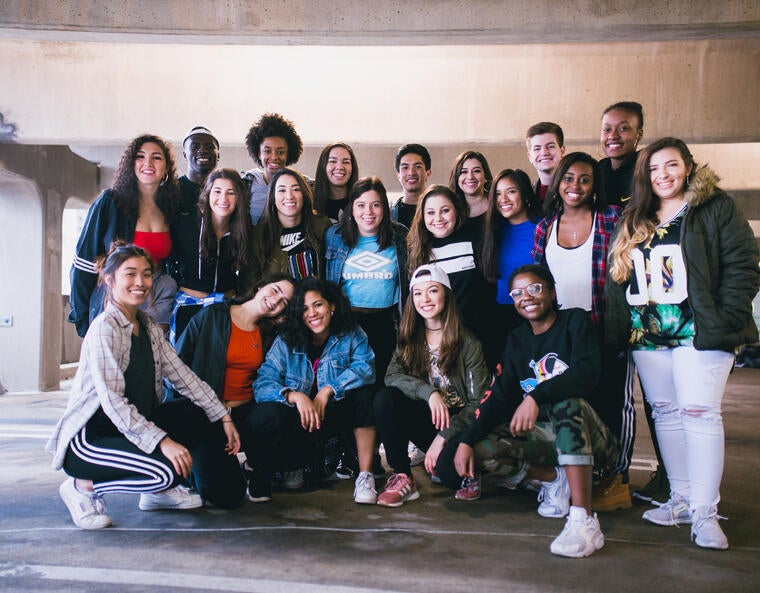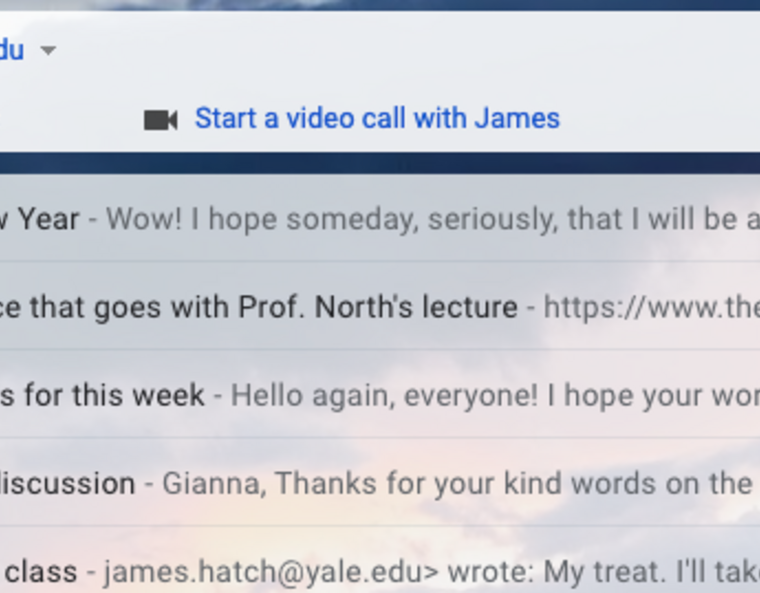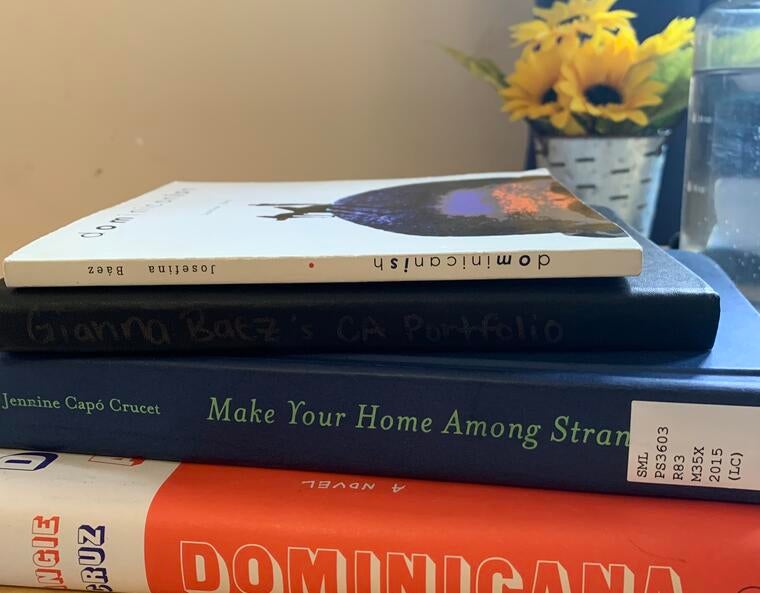
Before coming to Yale, I thought a thesis was the main argument of a paper. I quickly learned that an undergraduate thesis is about fifty times harder and fifty pages longer than any thesis arguments I wrote in high school. At Yale, every senior has some sort of senior requirement, but thesis projects vary by department. Some departments require students to do a semester-long project, where you write a longer paper (25-35 pages) or expand, through writing, the research you’ve been working on (mostly applies to STEM majors). In some departments you can take two senior seminars and complete a longer project at the end of the semester. And other departments have an option to complete a year-long thesis: you spend your senior year (and in some cases your junior year), intensely researching and writing about a topic you choose or create yourself.
Both my departments––English and Ethnicity, Race, and Migration––offer all three of these options, and each student decides what they think is best for them. As a double major, I had the additional option to write an even longer thesis combining both my majors, but that seemed like way too much work––especially since I would have to take two senior thesis classes at the same time. Instead, I chose a year-long thesis for ER&M that combined my literary interests with various theoretical frameworks and the two senior seminars for English. This spring I’m taking my second seminar. Really, I chose the option to torture myself for a whole year, the end result being a minimum of 50 pages of innovative thinking and writing. I wanted to rise to the challenge, proving to myself I could do it. But there also seemed to be the pressure of “this is what everyone in the major does,” and a “thesis is proof that you actually learned.” Although these sentiments influenced my decision to complete a thesis, I know a long research paper does not validate my education or work as a scholar the last four years. It is not the end all be all.
My senior thesis focuses on Caribbean literature - specifically, two novels written by Caribbean women that really look at what it means to come from an immigrant family, to move, and to find yourself in completely new spaces. These experiences are all too relatable to my own life as a second-generation woman of color with immigrant parents enrolled at Yale. In my writing, I focus on how these women make sense of “home” (a very broad and complicated topic, I know), and what their stories tell us about the diasporic experience in general. The project is very personal to me, and I chose it because I wanted to understand my family’s history and their task in making “home” in the U.S., whatever that means. But because it’s so personal, it’s also been really difficult. I’ve experienced a lot of writer’s block or often felt unmotivated and judgmental towards my work. I’ve realized how difficult it is to devote your time and energy to such a long process––not only is it research heavy, but you have to write and rewrite drafts, constantly adjusting to make sure you’re being as clear as possible. Really, writing a thesis is like writing a portion of a book. And that’s crazy! You’re writing two or three whole chapters of academic work as an undergraduate student.
The process is definitely not for everyone, and I’ve certainly thought “Why did I want to do this again?” But what’s really kept me going is the support from my advisors and friends. The ER&M department faculty does an amazing job of providing us mentorship, revisions, and support throughout the process; my advisor has served as my editor but also the person who reminds me most that this work is important, as I often forget that. It also helps to have many friends and people in the major also writing their theses. I’ve found different spaces to just have a thesis study hall or working time, with other people also struggling through. Recently, I submitted my first full draft (note: it was kind of unfinished but it’s okay because it’s a draft!), and it was crazy to think that I wrote 50+ pages, most of which are just my own original thoughts and analysis on two books that have almost no scholarship written about them. It was a relief for sure. This week I will be taking a full break from it, but it reminded me of why I began this journey. It reminded me of all the people who’ve supported me along the way, and how I really couldn’t have done it without them. And now, I’m really looking forward to how good it will feel to turn in my fully written thesis mid-April. I’ve realized that this project shouldn’t be about making it good for Yale’s standard, but for myself, for my family, and for the people who believe in this work as much as I do.

